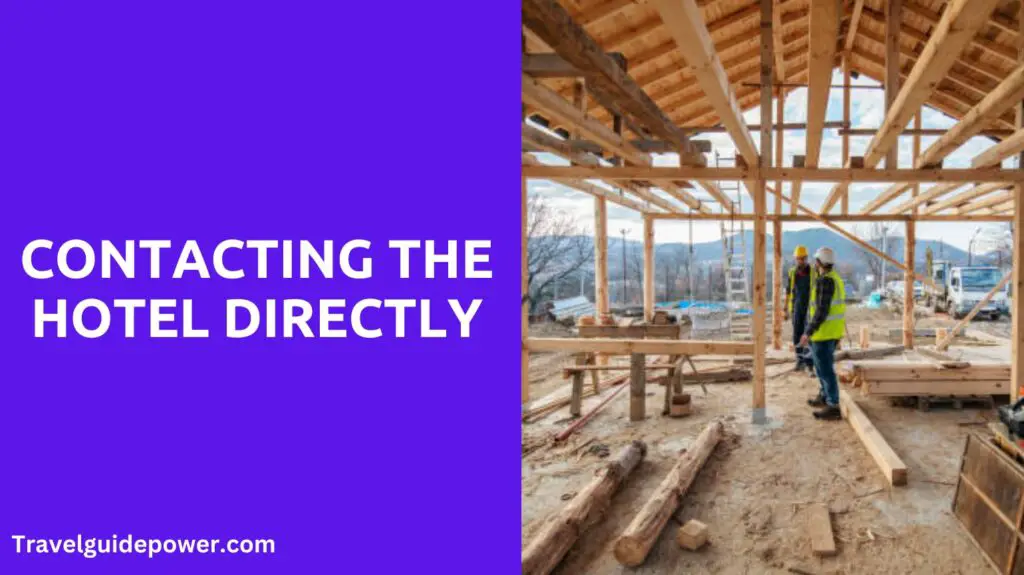How to Find Out When a Hotel Was Built? (Guide)
In today’s travel-savvy world, knowing the age of a hotel can provide valuable insights into its history, maintenance standards, and overall experience for guests.
How to Find Out When a Hotel Was Built? Whether you’re a curious traveler or a hospitality industry professional, understanding how to uncover a hotel’s construction date can enhance your appreciation and decision-making process.
This article will guide you through various methods and resources to determine when a hotel was built.

How to Find Out When a Hotel Was Built?
To find out when a hotel was built:
- Check the Hotel’s Website: Often includes a history or about section.
- Contact the Hotel Directly: Call or email the hotel and ask.
- Look at Online Reviews and Travel Sites: Some reviews may mention the hotel’s age.
- Search News Articles or Press Releases: Might have information on the hotel’s opening.
- Consult Local Historical Records: For older hotels, local archives or historical societies may have records.
Importance of Knowing the Hotel’s Age
Before diving into the methods, it’s essential to understand why knowing a hotel’s age matters.
The construction date can reveal crucial information such as architectural style, renovations, and adherence to safety standards over time.
For guests, it can influence expectations regarding room amenities, structural integrity, and historical significance.
Likewise, for hoteliers and investors, the age of a property can impact maintenance costs, regulatory compliance, and strategic planning.
Researching Online Sources
One of the most accessible ways to find out when a hotel was built is through online sources.
Start by visiting the official website of the hotel, where they often showcase historical information, including the year of establishment and any major renovations.
Additionally, explore reputable review websites and travel blogs, as they may provide insights from past guests or industry experts regarding the hotel’s age and history.
Contacting the Hotel Directly

If the online information is insufficient or ambiguous, consider reaching out to the hotel directly.
Contact their customer service or management team and inquire about the construction date or any available historical records.
Many hotels value transparency and are willing to provide detailed information to curious guests or potential clients.
Consulting Historical Records
For older hotels or properties with significant historical value, consulting local archives or historical societies can yield valuable data.
These institutions often maintain records related to building permits, construction dates, and notable events in the hotel’s history.
By accessing official documents and archives, you can verify the accuracy of the information and gain a deeper understanding of the hotel’s heritage.
Checking Building Permits and Codes
Another method involves reviewing building permits and codes associated with the hotel’s construction.
Municipalities typically keep records of permits issued for new construction or major renovations.
By examining these permits, you can determine the exact date when the hotel was built and any subsequent modifications or upgrades.
Using Online Tools and Databases
In the digital age, several online tools and databases specialize in gathering information about properties, including their construction dates.
Utilize these resources by entering the hotel’s name or address to retrieve relevant data.
While some tools may require a subscription or payment, they can offer comprehensive insights into the hotel’s age and development timeline.
Talking to Local Historians or Experts
Engaging with local historians, architects, or preservationists can provide unique perspectives on a hotel’s history and architectural significance.
These experts often possess in-depth knowledge about historical buildings and can share anecdotes, photographs, or documents related to the hotel’s construction and evolution over time.
Visiting the Hotel in Person
For an immersive experience, consider visiting the hotel in person and exploring its premises.
Many hotels display plaques, artwork, or exhibits showcasing their history, construction details, and notable milestones.
Take a guided tour if available, and interact with staff members who may share interesting anecdotes or insights about the property’s heritage.
People also ask
How do you figure out when a hotel was built?
You can usually find out when a hotel was built by checking its official website, contacting the hotel directly,
or searching for information on travel websites, review platforms, or local tourism bureaus.
Additionally, you can look for historical records, newspaper archives, or property records in the area where the hotel is located.
How can I find out how old a hotel is?
To find out how old a hotel is, you can:
Check the hotel’s official website or contact them directly.
Look for information on travel websites, review platforms, or local tourism bureaus.
Check historical records, newspaper archives, or property records in the area where the hotel is located.
Consult with local historians or visit historical societies for information about the hotel’s construction and history.
How much land do you need to build a hotel?
The amount of land needed to build a hotel varies widely depending on factors such as the hotel’s size, location, amenities, and local regulations.
Generally, hotels require several acres of land for parking, landscaping, and the actual building footprint.
Larger hotels or resorts may require even more land for additional facilities such as pools, restaurants, and recreational areas.
It’s essential to consult with local zoning regulations and hotel developers to determine the specific land requirements for your project.
What is the most common check-in time for hotels?
The most common check-in time for hotels is typically around 3:00 PM.
However, this can vary depending on the hotel’s policies and availability.
It’s always best to check with the specific hotel you’re planning to stay at for their check-in time.
Conclusion
Discovering when a hotel was built adds a layer of intrigue and understanding to your travel or professional endeavors.
By utilizing a combination of online resources, historical research, and local expertise, you can unravel the timeline of a hotel’s evolution and appreciate its unique story.
Whether you’re a guest seeking historical charm or a hospitality professional assessing investment opportunities, the age of a hotel offers valuable insights into its past, present, and future.

I am James, a passionate traveler with a knack for uncovering hidden gems and sharing valuable insights, TravelGuidePower.com is your go-to destination for comprehensive travel guides and honest hotel reviews. With years of globetrotting experience under our belts, we understand the thrill of exploration and the importance of reliable information when planning your next escapade.





